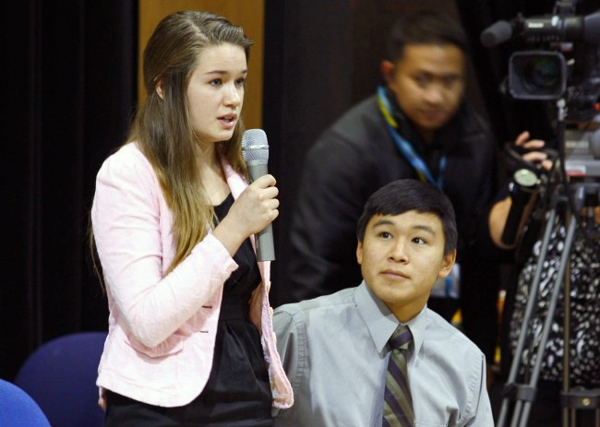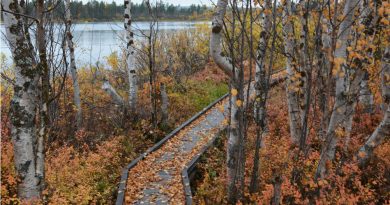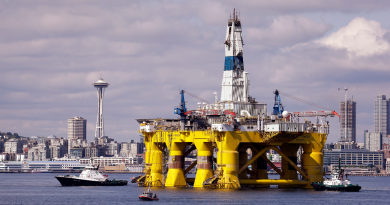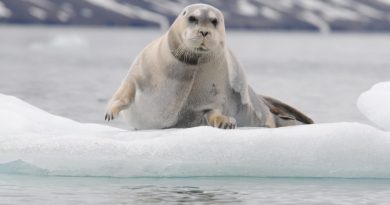Alaska Supreme Court to hear climate change case

Alaska’s high court became the first state supreme court in the country yesterday to hear an appeal in one of more than a dozen climate change lawsuits.
The lawsuits pit young people against their states. The plaintiffs claim the state has an obligation to protect the atmosphere from excessive carbon emissions.
Nelson Kanuk is a freshman at the University of Alaska Fairbanks and the main plaintiff inAlaska’s case.
Listen to the full report from Jeremy Hsieh, KTOO – Juneau:
His family’s home in the 600-person village of Kipnuk became uninhabitable because of spring floods, melting permafrost and erosion. This summer, his parents, two brothers and three sisters moved to Bethel, about 100 miles away.
“So we’re thinking of hopefully rebuilding our home in Kipnuk, or we might move out of town to possibly Kenai,” Kanuk said. “Somewhere we can start over.”
The state has three main arguments for why the court should dismiss his case:
- Climate change is a political question that only lawmakers and the governor can address. Not the courts.
- The injury to these youths from climate change is so ubiquitous that they don’t have legal standing.
- And finally, the atmosphere, unlike, say, clean water, isn’t a public trust resource that the state has a legal obligation to protect.
The science of climate change was not disputed.
Assistant Attorney General Seth Beausang argued the case for the state.
“My argument is not that that nothing can be done to stop global warming,” Beausang said. “It’s just that it shouldn’t happen in the context of a lawsuit. Where I think it should happen is at the political level, so if people are concerned about climate change, you know, they should get involved. And, you know, we live in a democracy and you should get as involved as you possibly can.”
While it’s not up to the court to write policy, attorney for the plaintiffs Brad DeNoble argued it is the court’s role to compel the state to come up with policy.
“You can declare the constitutional rights. You can declare that the atmosphere is a public trust resource. You can order the state to develop an accounting,” DeNoble said.
You can watch Gavel Alaska’s webcast of the Supreme Court proceedings and read tweets from the event here
Similar lawsuits are pending in 12 other states, federal court — even Ukraine and Uganda. That’s according to Julia Olson, director of Our Children’s Trust. Her Oregon-based nonprofit helped Kanuk and other young people file these suits.
So far, Olson says only a trial court in Texas has backed the plaintiffs. Texas filed an appeal.
Alaska Chief Justice Dana Fabe didn’t give a timetable for when to expect a decision. Opinions typically come months after arguments are heard.



